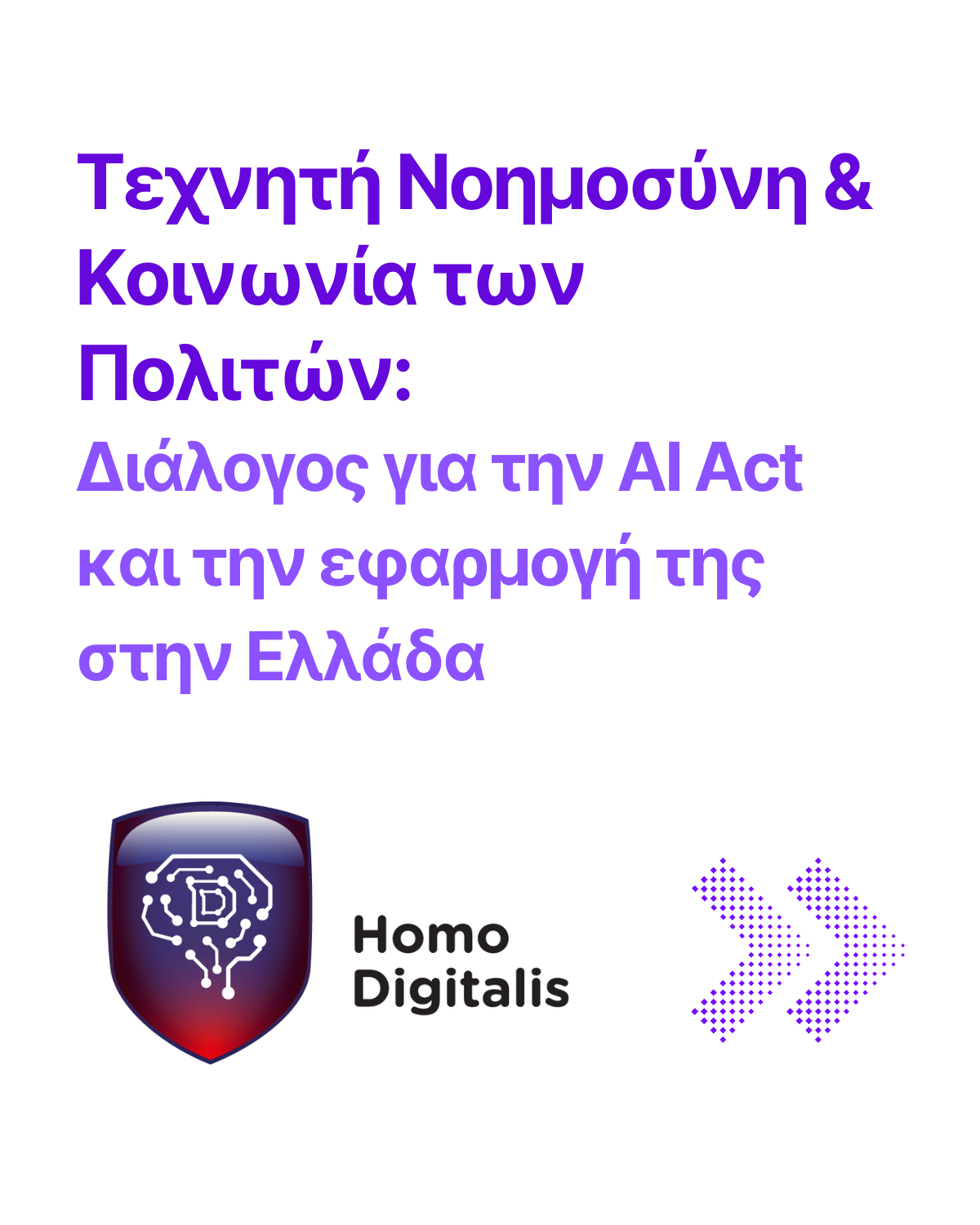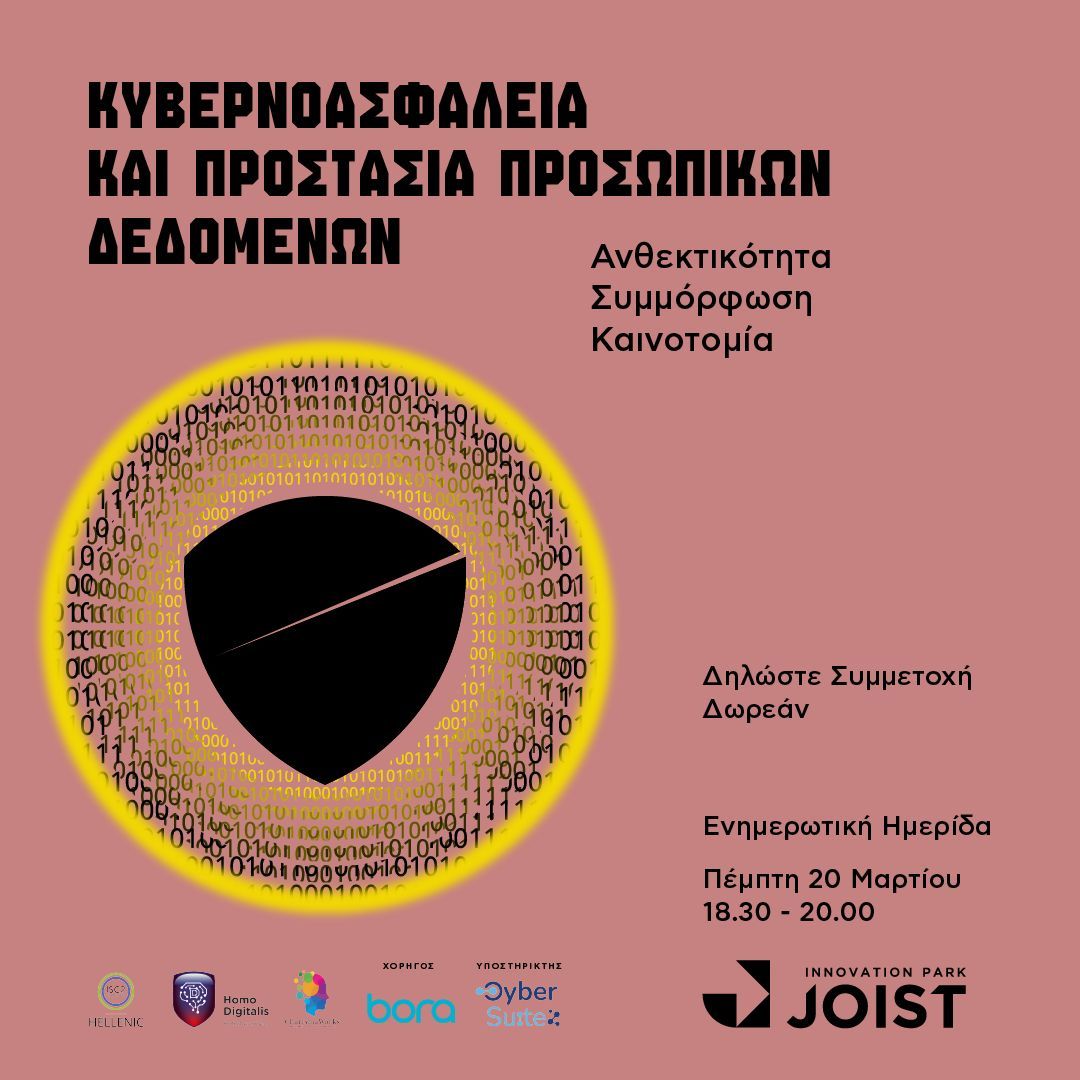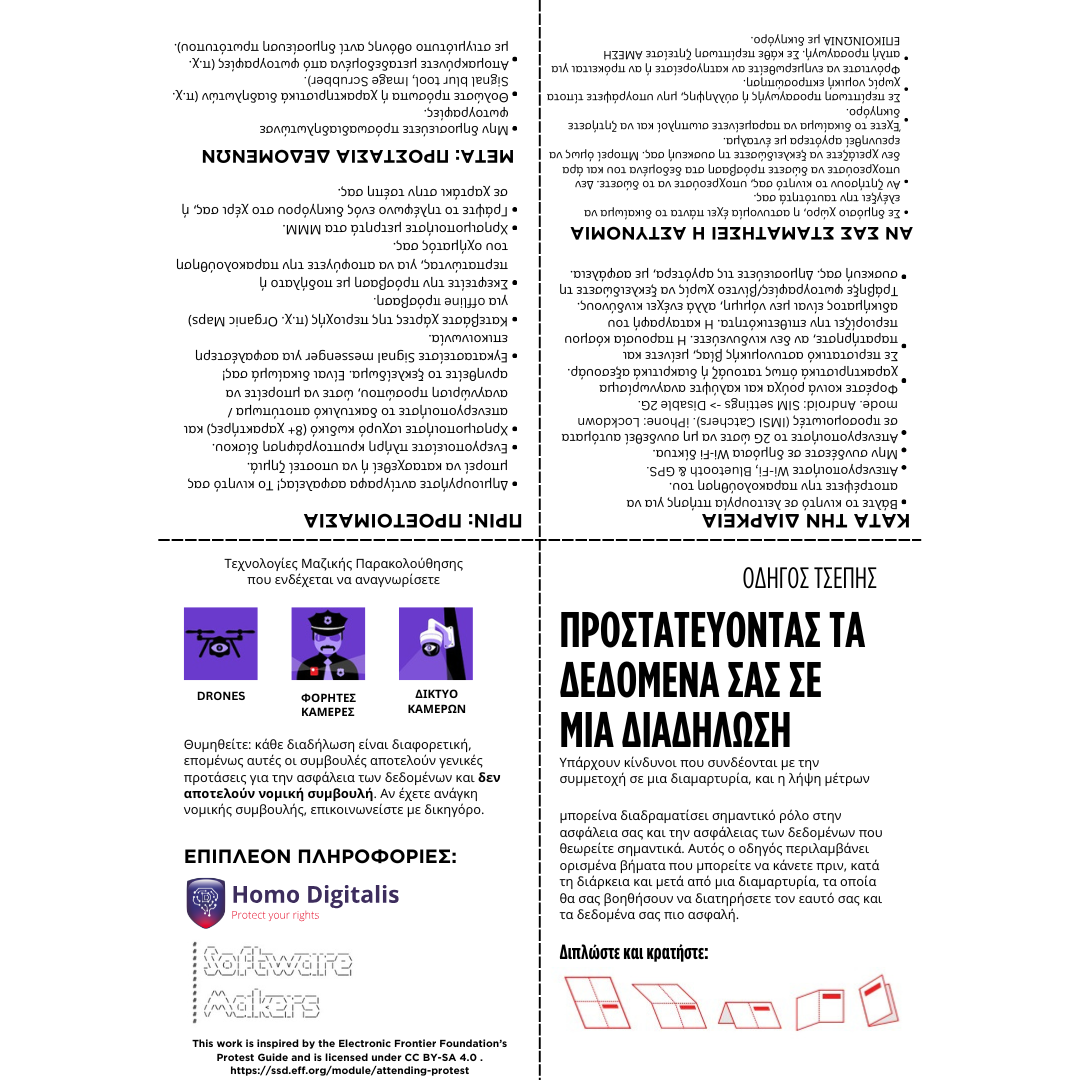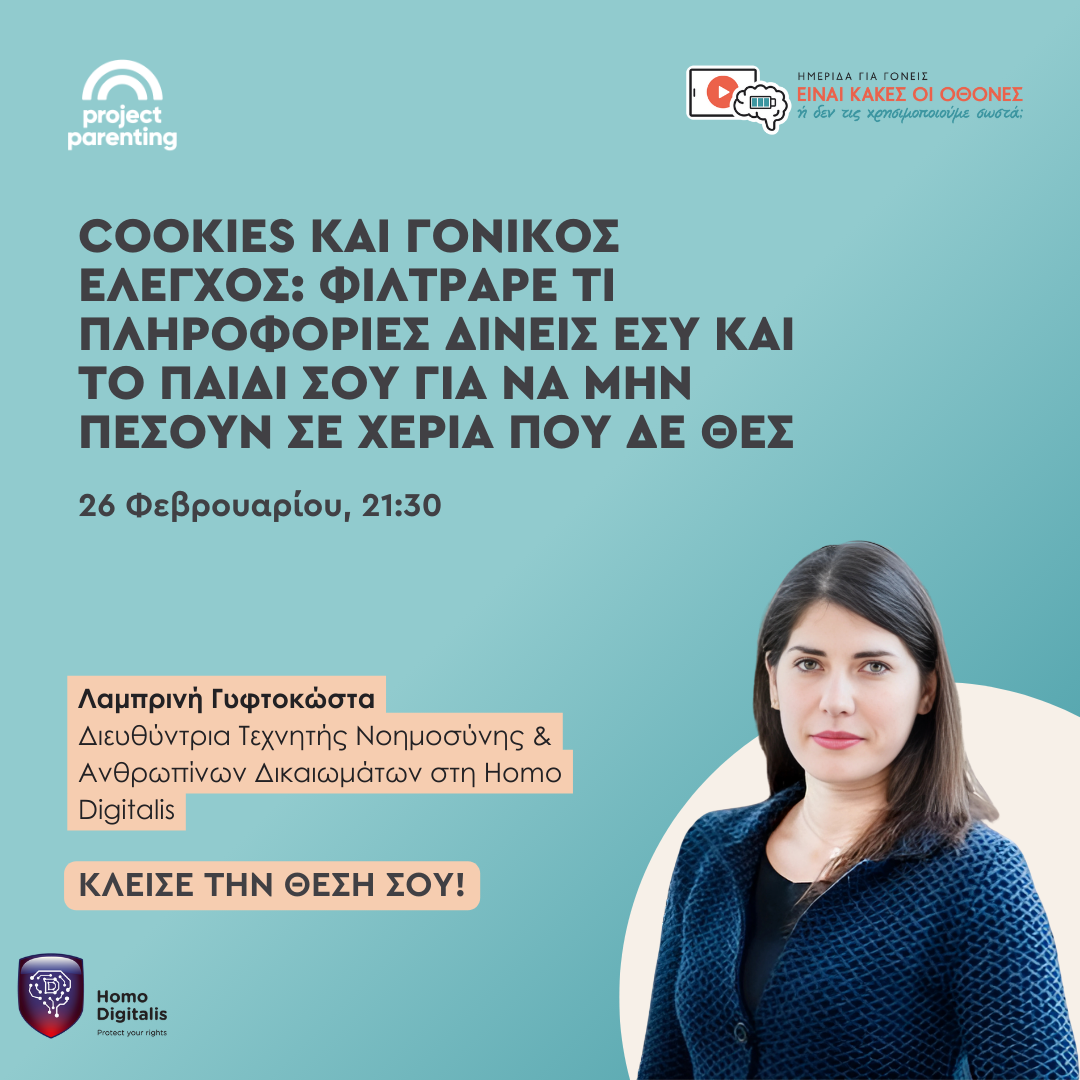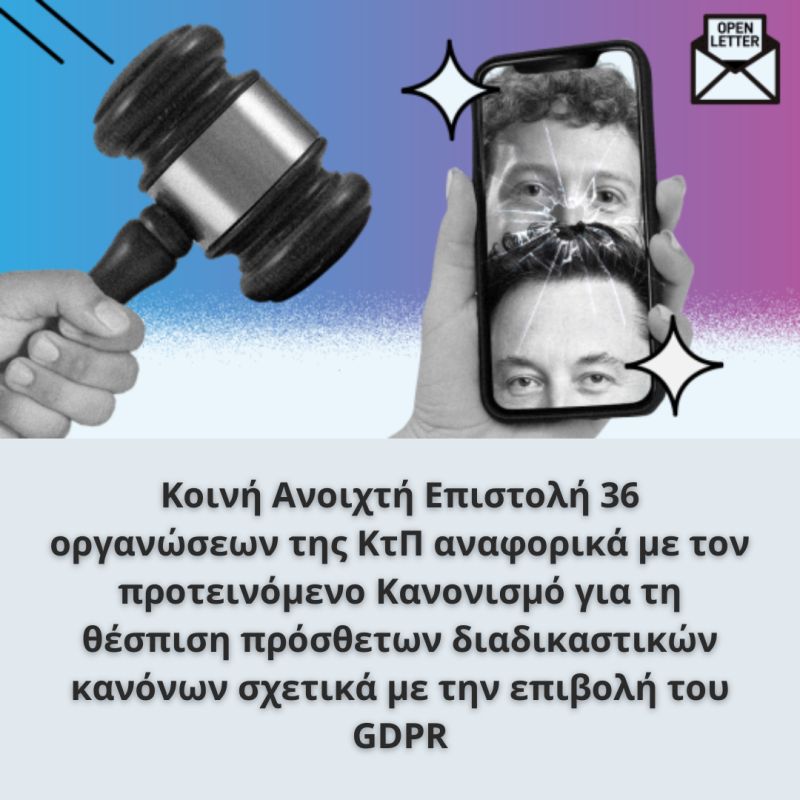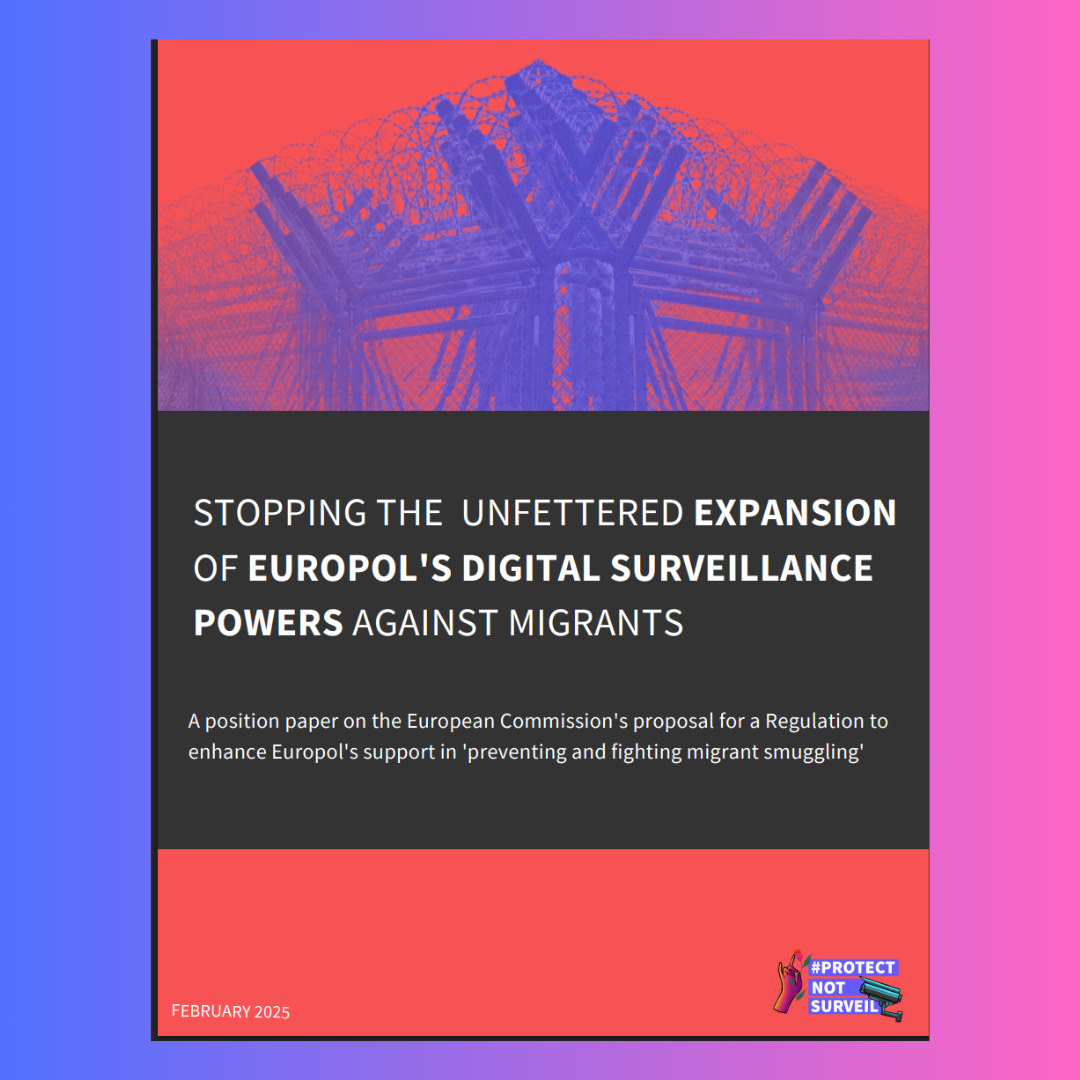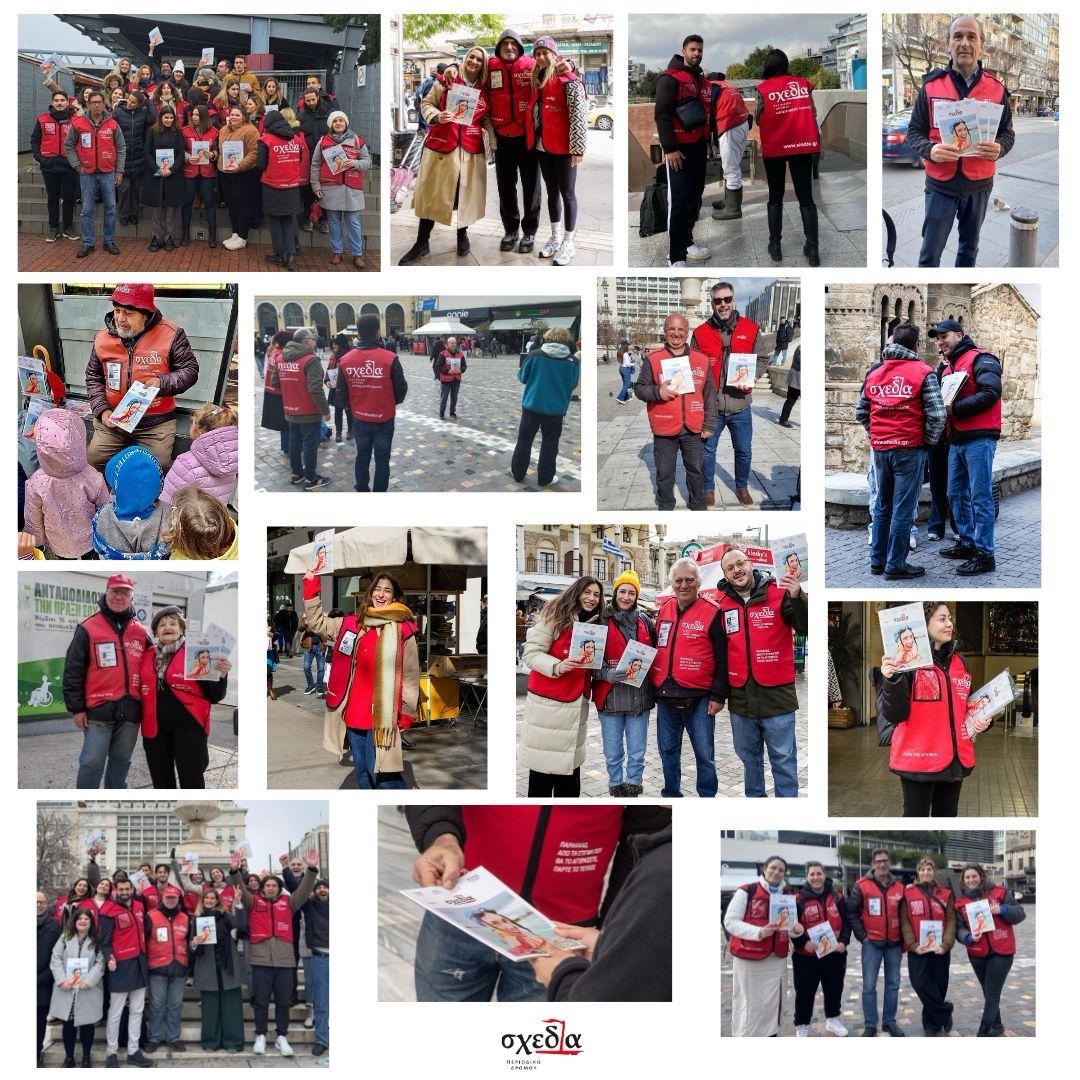Homo Digitalis Event on the AI Act and opportunities for synergies for Civil Society Organizations
On Thursday, February 27, Homo Digitalis organized the first-ever workshop on the AI Act for Civil Society Organizations in Greece at its offices in ViOS Coworking Space!
More than 20 organizations participated, coming from diverse backgrounds but sharing a common interest: collaborating on the challenges and opportunities arising from the AI Act.
Event Highlights
During the event, we presented our three thematic studies on the AI Act:
-Fundamental Rights Impact Assessments (FRIAs)
-Supervisory Authorities & AI Governance Ecosystem
-Prohibited Practices
We also hosted thematic discussion groups on four key topics:
-Environment & Artificial Intelligence
-Business Practices & Algorithmic Transparency
-AI in Policing & Migration
-AI Systems, Democracy & the Information Society
A Huge Thank You!
We extend our heartfelt thanks to all the organizations that participated, bringing their energy, trust, and spirit of collaboration!
A special thanks to the Homo Digitalis team for organizing the event and presenting our studies: Sofia Antonopoulou, Niki Georgakopoulou, Lamprini Gyftokosta, Tania Skrapaliori, Eleftherios Chelioudakis, and Stavroula Chousou.
Proudly Supported by:
This event was made possible with funding from the European AI & Society Fund and European Digital Rights—we are incredibly proud of their support!
Join Us!
Want to be part of this collaborative effort? Fill out the contact form on our website!
Participating Organizations:
ActionAid Hellas, KEAN – Cell of Alternative Youth Activities, Greenpeace Greece, WWF Greece, inside story., Reporters United, Solomon, Eteron Institute, KnowledgeRights21, EKPIZO, Greek Council for Refugees, Open Lab Athens, Vouliwatch, Amnesty International – Greece, Transparency International Greece, I Have Rights., HIAS Greece, Open Technologies Organization, CopWatchGR, Hellenic League for Human Rights, omniatv, Diversity Charter Greece, Generation 2.0 for Rights, Equality and Diversity.
What’s Happening with the 1,000 Smart Policing Devices of the Hellenic Police, Five Years After Our Complaint to the Hellenic Data Protection Authority ?
What is the status of the 1,000 portable smart policing devices used by the Hellenic Police as part of the Smart Policing program, which incorporate artificial intelligence technologies and cost €4 million? (Spoiler alert: the news is not good!)
Journalist Eftychia Soufleri has written a detailed article for NEWS247.gr (THE MAGAZINE) shedding light on the case and highlighting the key actions taken by Homo Digitalis since 2019. Our Executive Director, Eleftherios Chelioudakis, provided statements on behalf of our organization.
Significant Revelations Emerge for the First Time!
According to the report, despite the absence of any legal framework allowing their use, the Hellenic Police:
Claims to have been using the devices operationally since 2021, even though the Hellenic Data Protection Authority (HDPA) has been investigating the matter since August 2020 and continues to do so today.
Confirms that it fully utilizes the biometric processing capabilities of these devices (facial recognition, fingerprint identification).
Validates what was outlined in the 2018 technical specifications document, namely that the devices are used for “preventive policing”, with the collected data potentially being used in the future to establish correlations, conclusions, and predictive analytics.
Awaiting the HDPA’s Decision
We are still awaiting the Hellenic Data Protection Authority’s decision, as its investigation has now lasted over 4 years and 7 months (initiated in August 2020). The situation is escalating rapidly, and the risks to democracy and human rights protection are extremely high.
A big thank you to the journalist for her interest in our work!
You can read the full article here.
We are co-organizing an event on Cybersecurity and Personal Data Protection at the JOIST Innovation Park in Larissa!
On March 20, 2025, from 18:00 to 20:30, Homo Digitalis is delighted to co-organize and participate in the event “Cybersecurity and Personal Data Protection: Resilience, Compliance, Innovation” at the JOIST Innovation Park in Larissa!
The event aims to raise awareness and empower businesses of all industries and sizes so they can become resilient and innovate safely while respecting citizens’ rights.
Speakers at the event include:
Michail Bletsas, Head of the National Cybersecurity Authority
Panagiotis Soulos, Member of ISC2 Hellenic Chapter, Information Security GRC Senior Manager at STEELMET Corporate Services
Lamprini Gyftokosta, Director of Human Rights & Artificial Intelligence at Homo Digitalis
Giannis Koukouras, Member of ISC2 Hellenic Chapter, Managing Director at TwelveSec
Karina Iskandarova, Founder of CharismaWorks
The event will be moderated by Anastassios Arabatzis from Bora – Cybersecurity Marketing and Homo Digitalis.
Register for free here.
Read the Pocket Guide on Protecting Your Privacy During Protests
Today, Friday, February 28, marks two years since the Tempi train tragedy. Strikes and work stoppages have been organized across Greece and abroad to honor the memory of the 57 victims, demand justice, and hold those responsible accountable.
But what about your devices and personal data? How can you take steps to protect them during a protest?
Homo Digitalis, in collaboration with Software Makers, a nonprofit organization based in Heraklion, Crete, has translated and adapted the Electronic Frontier Foundation’s (EFF) Pocket Guide to Greek legal and practical realities. The guide provides essential steps to take before, during, and after a protest to help you safeguard both yourself and your data.
We stand in solidarity and offer our unwavering support!
The guide is available for download and printing here.
Homo Digitalis is participating in the online informational event organized by Project Parenting
Are screens bad, or are we just using them wrong?
Homo Digitalis is honored to participate once again in the digital conference organized by Project Parenting, dedicated to parents. The event takes place today, Wednesday, February 26, from 17:30 to 22:30!
At 21:40, Lamprini Gyftokosta will represent our team, speaking on the topic: “Cookies and Parental Controls: Filter the information you and your child share to keep it from falling into the wrong hands.”
Registrations are free, and you can still sign up to attend a series of insightful talks by experts on various important topics.
We co-sign an CSO Open Letter on the proposed GDPR Procedural Regulation
As the trilateral negotiations at the EU level continue regarding the proposed regulation on additional procedural rules for the enforcement of the GDPR, we, together with European Digital Rights and 34 other Civil Society organizations, join our voices in an open letter to lawmakers!
We urge them to prioritize strong enforcement mechanisms that ensure individuals can effectively exercise their rights while highlighting the systemic weaknesses in the enforcement of GDPR provisions.
Read the open letter here.
The Protect Not Surveil coalition publishes its report on the Europol Regulation
Today, the #ProtectNotSurveil coalition, in which Homo Digitalis serves as a member, launches its report on the Europol Regulation and calls for the full rejection of the European Commission’s proposal.
The Europol Regulation inadvertently supports the business model of smugglers while criminalising migration.
Crucially, the Europol Regulation:
- expands Europol’s surveillance capacity beyond its mandate under the pretext of fighting ‘migrant smuggling’, giving Europol new powers “in relation to all crimes for which it is competent”;
- The EDPS has already raised concerns that the file poses significant risks to the data and privacy rights of migrants, allowing mass data collection and sharing between Member States and EU agencies with known human rights violations (Frontex), as well as third countries without any legal basis for data sharing with the EU;
- The proposal is unsafe and unsubstantiated, presented without a proper impact assessment and based on false claims that smugglers pose the greatest threat to the safety of migrants (UN report);
- Millions in EU public funds will be wasted on Europol’s new activities for a false solution to migration management that simply will not work.
A summary of our position was also published in EUobserver. The full report is available here.
4 million euros were spent by the Greek Police to issue fines related to violations of the Road Traffic Code
Back in 2019, we started one of our first actions in the field of artificial intelligence by bringing to light the Smart Policing program of the Greek Police in collaboration with Intracom-Telecom.
The purpose of this project? The purchase of 1,000 portable devices that would enable functions like facial recognition, fingerprint scanning, document identification, and license plate recognition in urban centers during police checks.
We acted promptly and, in March 2020, requested the Data Protection Authority to investigate the matter, as, according to our legal analysis, processing biometric data in the context of using these devices would not be legal.
Since August 2020, the Authority has been investigating the case. The State paid the 4 million euros, and the company delivered the devices to the Hellenic Police. The latest development was in October 2024, when the Hellenic Police decided, starting from the first quarter of 2025, to use the document/license plate recognition functions of the devices to issue fines for violations of the Road Traffic Code.
We are glad that our swift action and the investigation by the Data Protection Authority froze the use of the invasive facial recognition and fingerprint scanning functions of these devices. However, the relevant decision by the Authority must be published immediately.
The 4.5 years of investigation by the Data Protection Authority also reveal that the state must support the Data Protection Authority, as the high level of expertise of its inspectors is not enough, and more human and financial resources are needed. And all this without considering the increased workload expected in the coming years with the AI Act.
You can read more about this in our latest study on the AI Act, pages 51-54 here.
Homo Digitalis wore the vest of love participating in the "Seller for an Hour" action of the street magazine "Shedia
On Wednesday, February 5th, Homo Digitalis had the great honor of wearing the vest of love, participating in the awareness-raising action of the street magazine “Shedia.”
At the end of the “Seller for an Hour” action, we would like to extend a big thank you to all the people of Shedia, with whom we had the opportunity to learn about their important initiatives, and to jointly send a message against social exclusion and in favor of solidarity.
You can learn more about the important work and the people of the Shedia magazine here.
